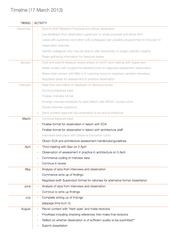|
One of the most interesting and valuable exercises within the Academic Writing Summer School that i participated in during June and July was the idea of freewriting. The underpinning rationale of this approach is to throw off the shackles of expectation and to just write. Don't worry about the reader or the technical quality of what you put on the page, just put something on the page. The perceived (and in my case, experienced benefit) is that rather than being concerned with polished sentences, an energy or momentum can develop from which original ideas might emerge. Or maybe that was my interpretation of it and in actuality is was meant to be more of about breaking writer's block than acting as a cognitive exercise? Or maybe it was both. It doesn't matter, the point is that I'm going to take this approach to get some down on the scree about the potential for a multimodal approach to online feedback. And as this is freewriting, I reserve the right to ignore, edit of even delete what follows, at a later stage!
What are the potential benefits off taking a more multimodal approach to online feedback? I'm going to work with the understanding that 'multimodal feedback' means that tutors have a range of modes within their power through which they can communicate with their students. Or to put in more real, practical terms, tutors have a range of tools they can use to provide feedback.
All-in-all, this is pretty unconvincing. Some ideas are better than others. The freewriting hasn't come up with any answers, however perhaps it has been valuable in steering me away from some weak ideas. The more I think about this multimodal feedback idea, the weaker it becomes. Maybe I'm trying to take too broad an approach.
0 Comments
Leave a Reply. |
Categories
All
Archives
October 2013
TimelineOther stuff
|
